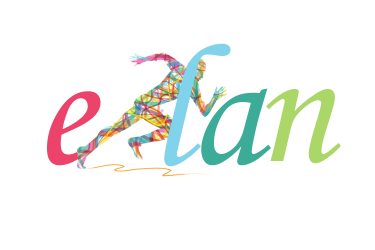Is that fair? Who cares? Life’s not fair in many ways, is it? You might have the most remarkable vocabulary and the most accurate grammar and still be wondering why you can’t get people to like hanging out with you or just have a conversation with you. No one likes robots. No one likes a talking dictionary either , unless it’s a female with great assets (apologize for the cheap joke). I can even argue that we, as native speakers, do not quite hear every word spoken during a conversation, we extract the idea or message being communicated by listening to the “whole” sentence including intonation and of course by watching body language. That is HOW or the “way” we say things.
Intonation
I’m not going to use technical words to explain intonation and I’m sure you are not in the mood to get a headache from reading this article, but think of intonation as the thing that makes people go “I like that guy”, or “she’s cool” or “what a jerk?”. I could give 3 different people exactly the same 3 words to say to the same person and then ask that person to tell me how they felt about each one of those 3 people and I’m confident that we would get completely different impressions about all 3 of them. What’s behind that? Intonation.
Is it only intonation? No, it’s other factors too but intonation is surely one of the biggest. People make judgements about who you are as a person, judgements in relation to your character, intentions, and credibility simply based on how you sound. Again, is it fair? Irrelevant. I have met some great people with great ethics, morals and education who were not very “popular” neither at work nor down at the pub. We are all familiar with those kind of people right? We all at some point must’ve come across a couple of individuals who no one really likes or wants to be friend with. We might’ve even made stupid “unfair” comments about them like “he’s so stuck-up”, or “she’s clueless”, or “he’s phony” etc. Not that we’re always wrong about them, but sometimes we are, and all I’m saying is that when we are or (do those stupid comments), it’s based on how people sound.
The first YouTube clip you see on the right-hand side is from Seinfeld, arguably one of the most popular and funniest comedy shows in the US back in the 90’s. Here’s a short dialogue from that show. BEFORE you watch the clip, read the dialogue and try to imagine how the actors might say it, and THEN watch it.
Newman: Margaret?
Margaret: Hello.
Jerry: You two know each other?
Newman: You might say that.
Margaret: We used to go out.
Newman: Well, toodle-loo, it was nice seeing you again Margaret! Bye Jerry, have fun
Jerry: You went out with Newman?
Margaret: Just a few times.
Jerry: Why?
Margaret: I liked him
Jerry: You liked Newman?
Margaret: Look, I’m a little uncomfortable talking about this okay?
Seinfeld: No I’m sorry, I’m a little curious, why did you stop seeing him?
Margaret: He ended it.
Jerry: He ended it?
Margaret: Yes, yes, it was a couple of years ago, why? does it matter?
Jerry: No, no, of course not.
Body language
You know what? Body language goes along with intonation. Here’s the proof. I can tell how someone sounds just by watching his or her body language. I can mute the TV while watching a movie, watch the actors’ hands gestures, facial expressions, head movements, body posture etc and easily imagine how they sound. If you hang out with English native speakers long enough, you start to see clear patterns in their daily communication, you sort of gather mental images with sound bites and start to realize what they mean without having to get the literal meaning of every word.
Here’s a clip from the popular sitcom “Friends” I used a few months ago to show the connection between intonation and body language. Take a look and see what I mean.
What should you take away from all this?
Language is a mode of expression. Language is a living thing and I’m very surprised when I see people learning it or teaching it as a bunch of (grammar) rules. The best way to improve your fluency in English is to nail the sounds first. Sounds are the character of the language. It’s what makes it alive and breathing. Learning English by studying grammar rules or the meaning of words is like learning everything about swimming without ever dipping yourself in the water. It’s like knowing the name of every part of the car, what it does, and what it’s for, and knowing every rule about driving without ever getting behind the steering wheel.
Okay, I guess you’ve got my point. You’ve got to learn the language by doing. Writing is also doing, of course, but think about it, what do we do more often? Write or speak? Depends on where you are. Without mastering the sounds of the language, you’ll never be able to express yourself orally with it. In the 21st century, that is a huge limitation.
I’m sure there are many who disagree, but just as many or even more who don’t (disagree). Do you? or do you not? Feel free to drop us a line, get involved.
